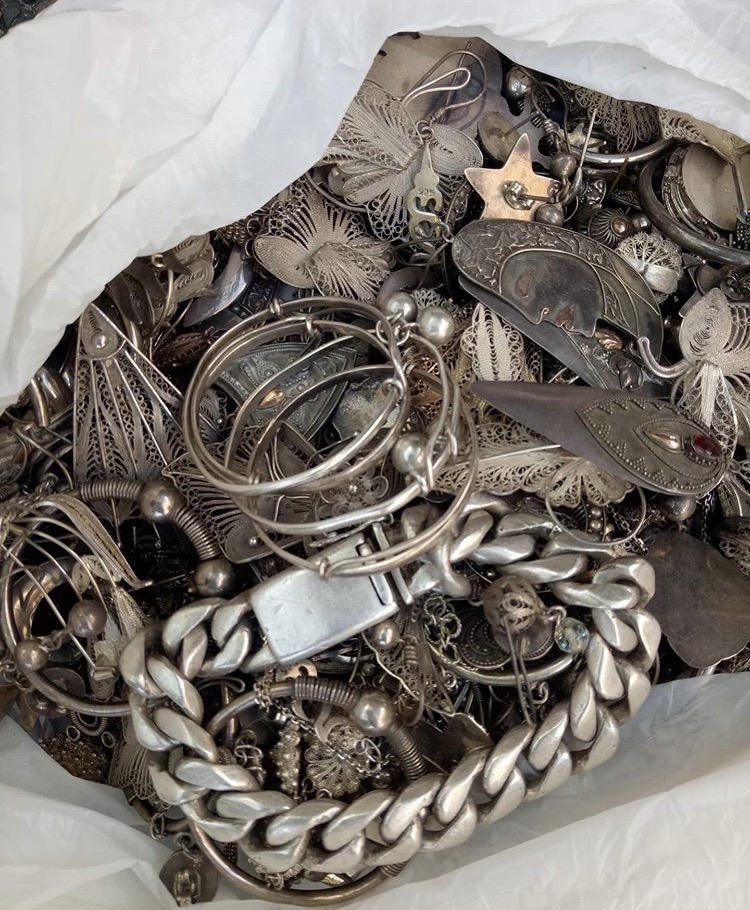The World Fashion Day is celebrated on August 21st each year to commemorate the glory, spirit, and art of fashion, as well as highlight the impact of fashion and style in society.
Over the past years, fashion has evolved rapidly, from the medieval to the modern era where fashion is not only to represent one’s tradition and flaunt their wealth but also to show personal identity.
Today, fashion has become a basic necessity in modern society. The latest seasonal fashion trends are coming straight from the Fashion Week runway. In order to satisfy the increasing appetite for fashionable clothing, the fashion industry is growing a well-established business model called “fast fashion”, where cheap apparels are produced quickly by large retailers to meet the ever-changing trends, thus encouraging people to buy more than they need.
In fact, this fast fashion game is seen as unsustainable. It contributes to environmental degradation as textile industries use water, energy, and other resources to manufacture textiles, not to mention the untreated toxic wastewater they produce is dumped directly into the rivers. Wastewater contains toxic substances, such as arsenic, lead, and mercury which can harm the aquatic life as well as the people living by the river banks. The use of fertilisers for cotton production is also responsible for making up the vast majority of greenhouse gas emissions. Moreover, textile waste diversion causes a serious problem to the environment where it takes up a significant amount of components of our landfills, around 13 million tons per year, according to the United States Environmental Protection Agency (EPA). Some countries even ship their trash abroad, producing more greenhouse gases in the transportation process than if it were to sit in a dump for years.

From a human security perspective, fast fashion undermines labour rights where garment workers suffer from poor working conditions as well as perpetuates sexual harassment, especially to female workers due to an imbalance of power relationships in a predominantly male workplace. According to the International Labour Organisation (ILO) in 2019, four out of five Indonesian garment workers experienced sexual harassment. Furthermore, some companies are even allegedly forcing underage children to work excessive hours for cheaper sources of labour. These issues have turned people attention to more sustainable fashion shops which provide ethically sourced products.
Sustainable and Ethical Fashion: A Response to Fast Fashion Trend
The negative effects caused by fast fashion have developed an idea of sustainable and ethical fashion. According to Dara Cincinati, a slow fashion enthusiast and founder of sustainable jewellery goods called “Cincinati”, sustainable fashion is fashion items that are produced, marketed, and used sustainably, without overlooking the environmental and socio-economic aspects. She added that this implies the continuous effort to extend the entire stages of the product’s life cycle, from design, raw material production and treatment, garment workers’ welfare, fabricating, packaging, supply chain, marketing, and the final sale to consumers to then be used, reused, repaired, and recycled. That is why most sustainable products are very pricey as the brand pays detailed attention to these aspects.
The idea of sustainable fashion is not new. Throughout history, people have made their own clothes from natural fabrics and plant dyeing. In the late 60s to early 70s, several movements from subculture groups, such as hippie, punk, and gothic rejected the idea of mainstream fashion. In the late 70s, an Austrian fashion designer and author, Victor Papanek, introduced a concept of sustainable and ethical fashion. However, it did not get much attention as the aftermath of textile mass manufacturing to the environment were still insignificant.

Nowadays when fast fashion becomes an alternative to affordable trendy clothing, people realise that it can be a threat to the environment and society. Especially since the collapse of the Rana Plaza in Dhaka, Bangladesh in 2013 had killed and injured thousands of garment workers. The dreadful incident marked a fashion revolution.
“Recently, some fast fashion brands, like H&M and Zara provide recycling box for people who want their old clothes to be recycled. They also try to create sustainable and ethically sourced clothing lines and it is actually a good start. But it does not stop there. They need to reshape their business models and missions to be more mindful, not just plain greenwashing,” Dara asserted.
Dara also added that public disclosure from major brands and retailers is paramount to let the consumers know about their policies, business practices, and supply chain. Although transparency does not always mean sustainability, this information can shed light on how sustainable and ethical the product is so that consumers can choose their apparel wisely. “In the luxury segment, Hermès was the first one to provide detailed information about their supplier list. And then this movement was followed by other luxury brands, such as Stella McCartney, Gucci, and Ermenegildo Zegna,” she said.
In Indonesia, however, slow fashion is still a new concept for some ready-to-wear labels. Dara thinks that local fashion brands which concerned with sustainable processes and fair trade are somewhat rare. “In my opinion, Indonesia has the potential to expand its garment industry to the international market as the country is actually rich in traditional textiles. Unfortunately, we still lack the knowledge and funds to stimulate a sustainable and ethical fashion industry. Therefore, government support is necessary to raise people’s awareness about sustainable and ethical fashion techniques and promote traditional garments to foreign investors is hoping to revamp our small fashion businesses run by local artisans,” she asserted.
Small Ways to a More Sustainable and Ethical Wardrobe
It is never too late to build your fashion consciousness. Dara suggested several useful tips to start with. First of all, it is essential to read the Fashion Transparency Index to understand the suppliers’ human rights and environmental objectives. Buy only from sustainable and ethically sourced brands. Although it may be a little bit expensive, it is more durable and guilt-free. If it is too much for your budget, try thrift shopping. Not only it give fashion items a second chance, but you may also discover vintage items with high-quality materials at a fractional price.
When the clothes no longer fit or are in style, do not throw them away. There are ways to improve the life span of your old apparel. Dara revealed that now people can subscribe to clothing rental services for a new everyday look while eliminating garment waste. “But if you do not feel like renting it, you can also donate it to the people in need. They will be very grateful,” she added. However, she did not recommend renting or donating worn-out clothes. “You can always repair and recycle them. It will give a fresh look and of course, it is a fun way to unleash your creativity.




